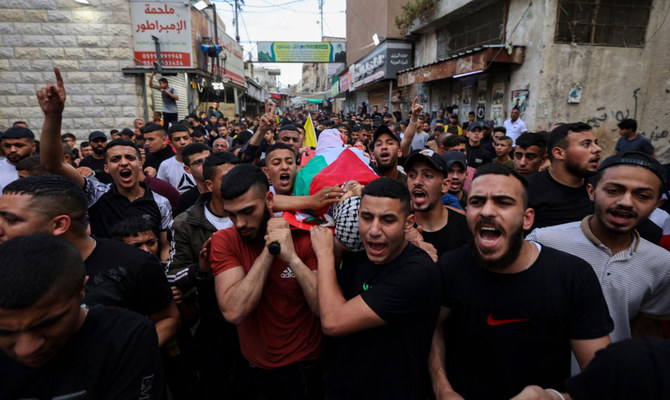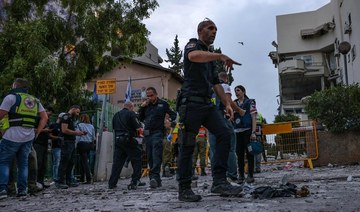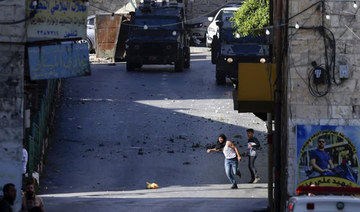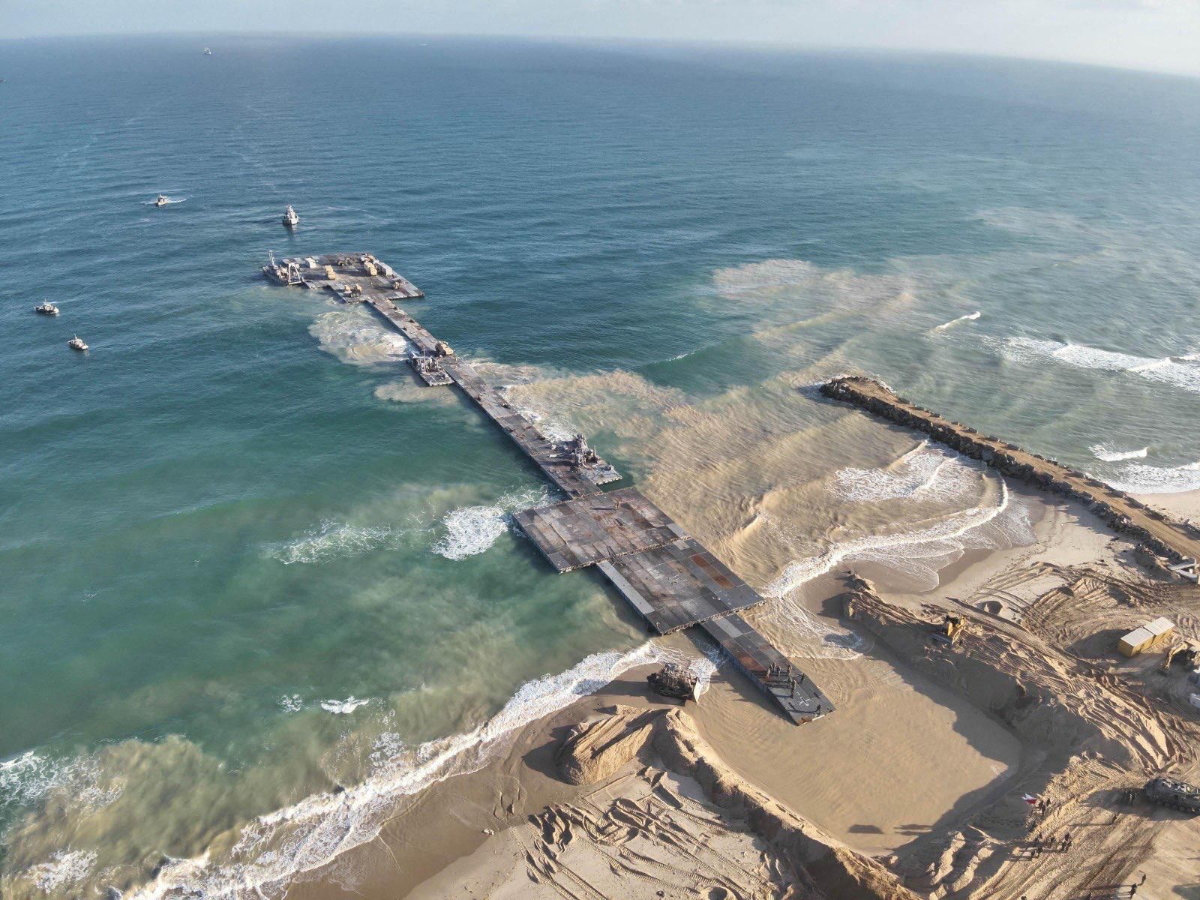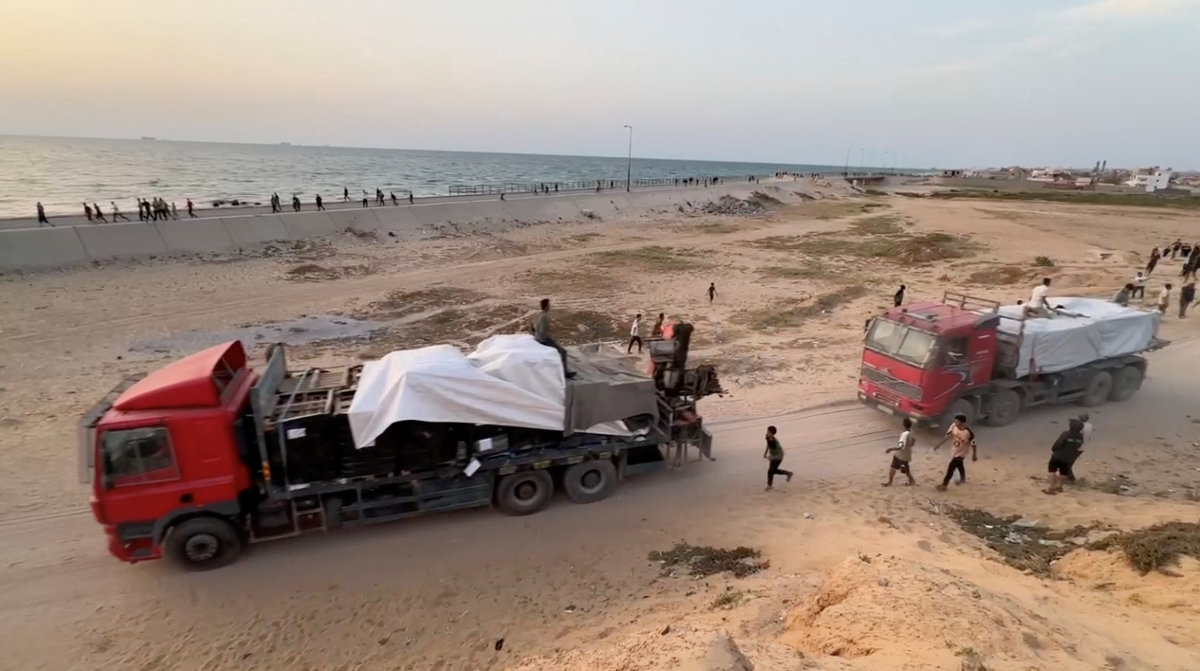RAMALLAH: A Palestinian teenager was killed and eight people, including a child, were injured when Israeli armed forces raided the Balata refugee camp near Nablus on Tuesday, according to Palestinian medical sources.
Faris Hashash, 19, was not wanted or a target of the raid, local sources told Arab News. The Israeli forces fired at an ambulance to prevent it from reaching the injured, they added.
Fatah mourned Hashash’s death and said the continuing Israeli crimes against Palestinians reveal beyond any doubt the determination of the extremist Israeli government to escalate the hostilities. It called on the international community to intervene immediately to curb the aggression by occupation forces against Palestinians, and said the terrorist policies of the Israeli government are fully responsible for how the situation is developing.
Taysir Nasrallah, a member of Fatah’s Revolutionary Council in Nablus, told Arab News that every operation carried out by the Israeli army in the cities and camps of the West Bank results in deaths, and most of the victims are not the targets of the military forces but innocent civilians living in densely populated places such as refugee camps or neighborhoods in Nablus’s old city.
“The youth Hashash, who was killed by the Israeli army during the storming of the Balata camp on Tuesday, was not wanted by the Israeli army, and this matter increases the state of tension and violence as military incursions into densely populated camps are repeated daily,” Nasrallah said.
Rawhi Fattouh, speaker of the Palestinian National Council, said that “the bombing of the homes of civilians in Balata camp, and the martyrdom of the citizen Hashash, is terrorism and criminality,” adding that he holds the fascist government led by Israeli Prime Minister Benjamin Netanyahu fully responsible for these daily crimes.
Meanwhile, Palestinian officials expressed deep concern about a draft law submitted by Tzvika Fogel, a member of the Knesset representing the far-right Jewish Power Party, that gives Minister of National Security Itamar Ben-Gvir the power to issue administrative detention orders against Palestinians in the West Bank and Israel. Administrative detention is the controversial power to hold suspects without trial or charge on the grounds that they might be planning a crime.
Qadri Abu Bakre, the Palestinian minister of detainees and ex-detainees affairs, told Arab News: “We are very concerned about granting Ben-Gvir these powers because it will double the administrative detentions due to his extremist ideological stances against the Palestinians.”
He said there are currently about 1,100 Palestinians held under administrative detention in Israeli prisons, a number that has doubled in the past year, and that Israeli prosecutors provide military judges with secret files containing alleged evidence that can keep Palestinian locked up for years.
Jessica Montell, the executive director of HaMoked, an Israeli organization that provides legal assistance to Palestinians and advocates for their rights, told Arab News that according to the latest data obtained from the Israel Prison Service, 1,083 Palestinians are being held under administrative detention without trial. The number has increased by 67 in a month, she added, and administrative detainees now constitute more than 20 percent of all Palestinians held by Israel.
“This is mass detention without trial, with no effective judicial review, as the detentions are based exclusively on secret evidence,” said Montell. “Israel must release all administrative detainees or give them a fair trial.”



